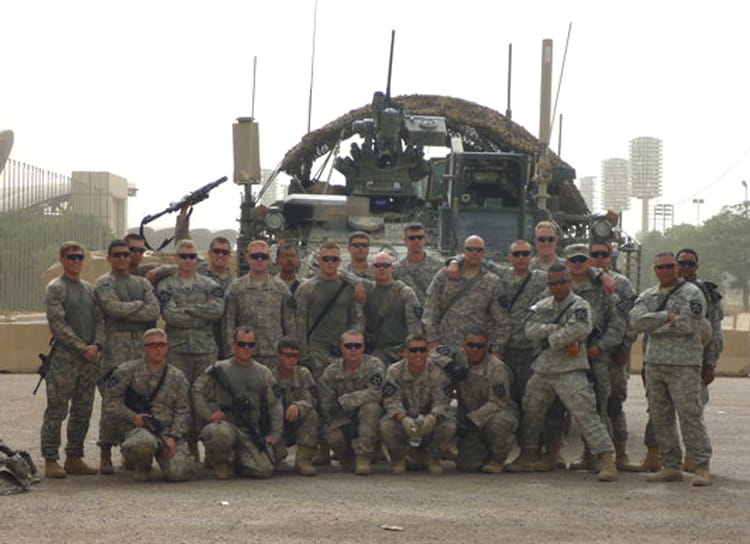Perspectives from a Kellogg Veteran

by Jeff Tillett, E&W 2017
Identifying the precise advantages of being a military veteran in the corporate world can be littered with inaccuracies, rumors and falsehoods. Besides the free Bloomin’ Onion at Outback Steakhouse on November 11, ascertaining the benefits and value add of being a veteran can, quite often, be opaque, hard to quantify and difficult to convey to the organizations at which you may wish to find yourself one day.
This is where the Kellogg difference is tangible. The Kellogg veterans’ network, all on its own, is a powerful force within the corporate world thanks to the work of some Kellogg OIF and OEF veterans who came before us. The incredible reach and brand of Kellogg specifically, and Northwestern more generally (check out Coach Fitz’s team in person, if you ever get a chance), amplified by the bonds that only the enduring hardships that military service can entail, are what create opportunities for you to forge a new personal path and make a difference in the world.
A Kellogg veteran’s on-campus experience
How do you quantify grit and mental toughness? How do you quantify discipline and leadership? How do you quantify the fact that you, at a certain point in your life, voluntarily said, “I sign this contract with my country, and the price I pay could ultimately be my life”? Kellogg, being the world-class thought leader that it is, delves deeply into those kinds of questions.
Professor Harry Kraemer’s Managerial Leadership class taught me how to think about standard military leadership templates from a different angle – with a twist, of course – and how you can apply those lessons in the corporate world. If you are, like I was, motivated to join the service or interested in tackling the great public policy issues of the day, Professor David Dranove’s Healthcare Economics class will add a lasting skill set to your capabilities to effectively analyze and address critical social problems. If you are, also like me, interested in international affairs, you can find yourself in Professor Phil Levy’s International Strategy class, learning from a scholar who has practiced under a presidential administration and experienced the issues where the “rubber” truly meets “the road.”
Kellogg serves as an unparalleled platform for these discussions. If you were, like me, trained to kick down doors, call in air support and drink hot, overly-sugared tea with local political and tribal leaders, then you are probably contemplating how those lessons translate to the business world. Kellogg is the best vehicle I could ever imagine to take those leadership and organizational management skills and articulate them in a competitive market.
The critical question is where you envision yourself in 3 or 5 or 10 or 30 years. Besides recalling old stories to your friends about that lovable-but-always-screwing-up Private First Class/Seaman/Lance Corporal, what is your vision of your life at that stage in your career? I will tell you mine. Besides my requisite free Bloomin’ Onion every November 11, I will recall the small and mostly forgotten moments at Kellogg that define a person’s vision and career: the expanded version of what great leadership looks like, the fantastic business education fundamentals, the new way of looking at the world, the most caring and best darn network of military veterans of any business school in America, and, most importantly, the ability to articulate how we can help our beautiful American experiment.
